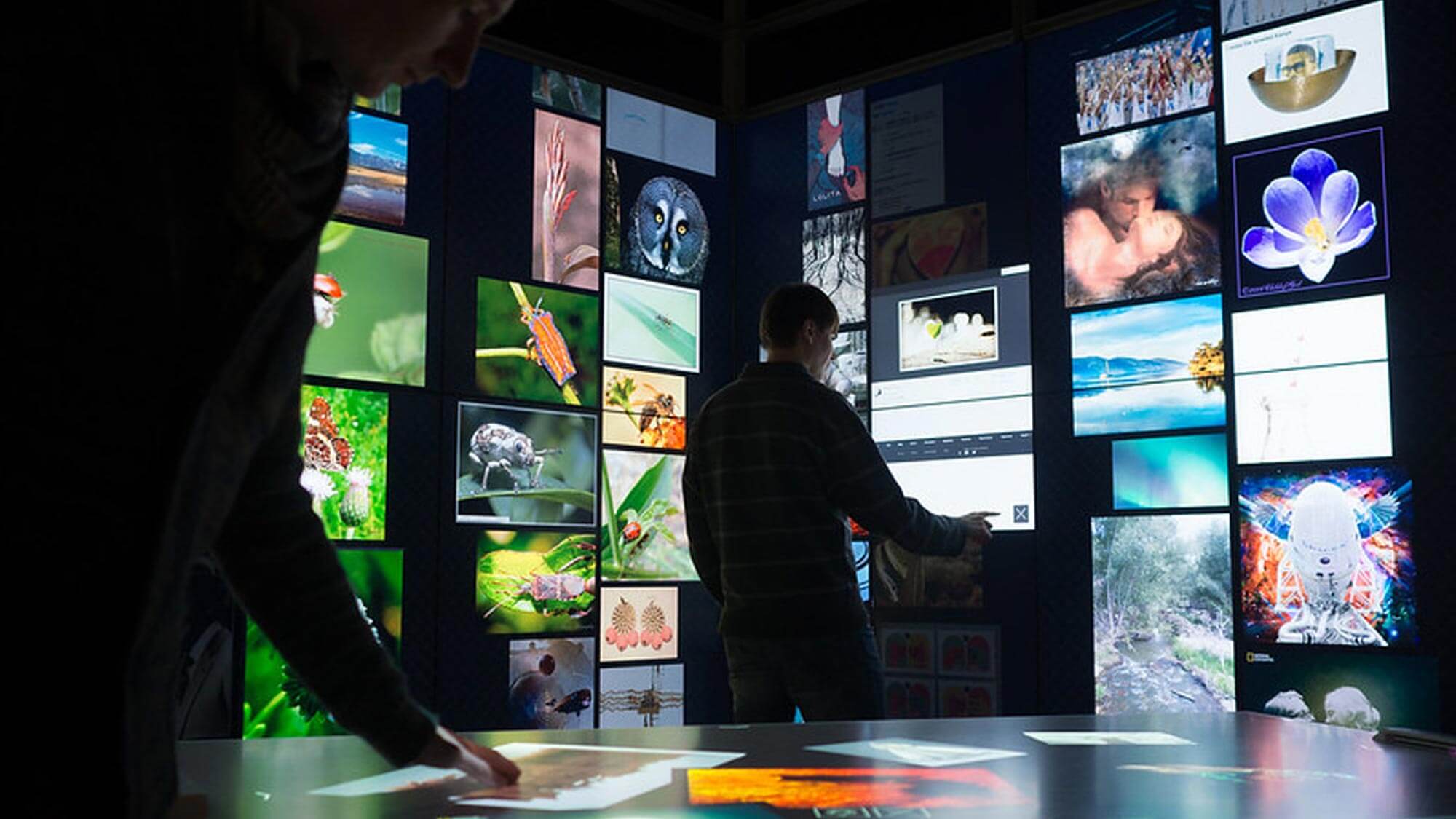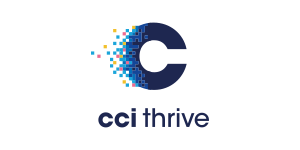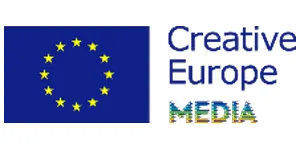Non-economic Business Models in the cultural sector
The workshop will focus on cultural Business Models, particularly related to non-financial value creation in the cultural sector with an innovative approach to change our behaviors, increase our knowledge and raise public awareness.
During the research phase to develop the workshop we defined three clusters to be discussed in the workshops: Environment and Sustainability; Democracy and Society; and Education. These will be discussed in depth during the workshops.

Participation: only with invitation
Environment and Sustainability
Communication about the challenges of the climate crisis and how to tackle them has become one of the cornerstones of cultural institutions’ activities. To engage audiences, fostering a feeling of hope and agency will have a higher impact to encourage behavioral change than doomsday scenarios, while maintaining a sense of urgency is also vital. Fostering community engagement and action by focusing on sustainability in a local scope can be a good approach and is one possible step in this direction. Institutions themselves should make structural changes to accommodate sustainable and slow solutions (e.g. making it possible for people to travel by train), but also work with concrete measures like calculating their own CO2 footprint (and acting on the results!). Developing action plans be seen as a journey towards green ambitions, and supported by creativity as a tool for finding solutions – involving artists, designers, local businesses, and researchers is one possible approach that can help in communication with both audiences and policy makers.
Experts
Alice Bonnot (FR), Ewen Chardronnet (FR), Archana Prasad (IN), Anke Schlünsen-Rico (DE)
Facilitator
Rasa Bočytė (LT)
Democracy and Society
Democracies are under attack, and societies are drifting apart. To counteract these developments, cultural institutions can contribute by focusing on the idea of mutual care and organizing “togetherness” – both in their approach to audiences and in their own structures. How can we build unconventional alliances, step outside the comfort zone, and build a culture of understanding each other? Cultural institutions can act as inclusive, safe spaces for encountering actors of other disciplines and perspectives, fostering the development of a communal voice. By promoting and living open leadership, they can redefine their societal and social role, acting as the spaces in which we develop shared visions of how to live together.
Experts
Olga Tykhonova (UA/AT), Bill Fontana (US), Jennifer Kanary (CA), Florian Weigl (NL)
Facilitator
Kelly Hazejager (NL)
Education
Cultural institutions do not only collaborate with and can learn from educational institutions, but they can also be educators that facilitate knowledge creation in dimensions and on levels that traditional educational institutions cannot achieve. Their big potential is the focus on the „in-between“ practices that create connection. This is both a great challenge and a great responsibility, as building bridges is only possible in the right mindset – culture can be an ecosystem of care as a new relationship between you, the other, your environment and the universe. By fostering digital literacy and access, communities could be brought together from different countries and nations around a common topic through digital platforms, thus fostering connections between culture, education and the digital.
Experts
Pau Alsina (ES), Gefion Thuermer (UK), Andrea Bandelli (NL), Petra Vanič (SL)
Facilitator
Marco Cappellini (IT)
Credits
The workshop programme in the context of the CCI Thrive Project funded through the Creative Europe Programme.
Public presentation on the Lecture Stage on the 07.09 from 17:00 to 18:30:
On Culture and Measurement: New Approaches for the Common Good
Outcome Presentation of the CCI Thrive Workshop and the Linz Center of Mechatronics Mechaton
About CCI thrive
How can the digital transformation help the cultural and creative industries to thrive? – With this question as a starting point, CCI Thrive explores cutting-edge digital technologies as a means to increase the competitiveness of the cultural and creative sector. We will explore how the innovative potential of cross-sectoral productions and collaborations can inspire forward-looking creative paths, pioneer business ventures and boost revenues of cultural productions.
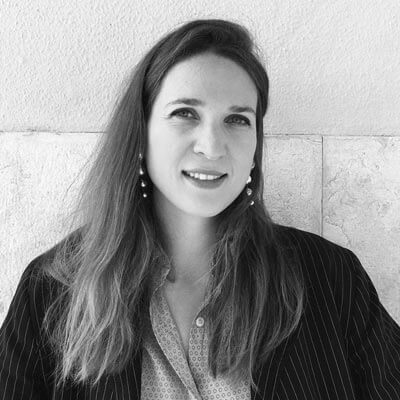
Alice Bonnot (FR)
Alice Bonnot joined Julie’s Bicycle in January 2023 as an Environmental Sustainability Specialist. She works with the Creative Green Consultancy team to help visual arts organisations understand their environmental impacts and develop and monitor climate action plans.
Alice is also an independent art curator, writer and lecturer, specialising in the development of environmentally sustainable art and curatorial practices with a drive towards eco solutions. She is the founder of VILLA VILLA and a member of the Green Art Lab Alliance, the Future Bank Materials working group and the Ki Culture professional network.
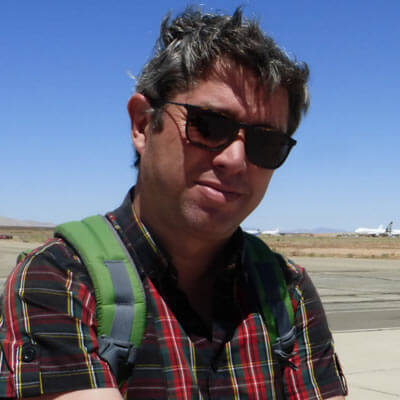
Ewen Chardronnet (FR)
Ewen Chardronnet is an artist, author, journalist, curator based in Paris. He’s currently director of operations at ART2M production company, where he is editor-in-chief of the bilingual fr/en makery.info web magazine on creative communities and coordinator of the More-Than-Planet (2022-2025) and Rewilding Cultures (2022-2026) projects funded by the European Union’s Creative Europe program.
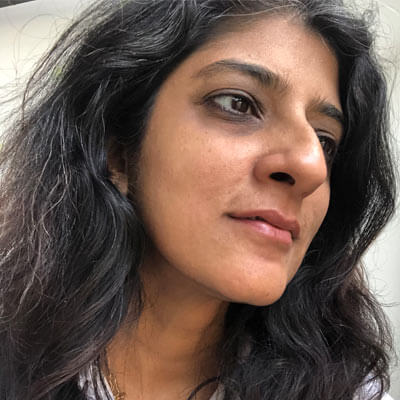
Archana Prasad (IN)
I am a creative technologist and entrepreneur working at the intersection of art, technology and community engagement with a strong foundation of research & participatory methodologies.
As Founder of Gooey.AI, Dara.network, BeFantastic.in & jaaga.in, I’m a TechStars Founder, Clore-Chevening Fellow, CSC Leadership Fellow and an ArThink South Asia Fellow.
My past includes working at Microsoft Research where I was awarded three patents, built working prototypes and published multiple papers on work looking at technology for people at the bottom of the economic pyramid. I have a double Masters, one in Animation Film Design and the other in Art History and a Bachelors in Painting. In 2017 I studied to be a Coach with RD1st & a Curator of Contemporary Arts at Royal College of Arts in the UK
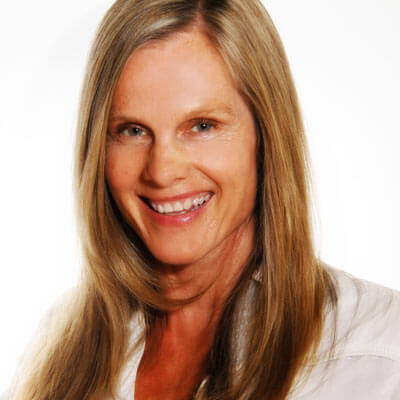
Anke Schlünsen-Rico (DE)
Art-Science Coordinator at GERICS
Anke Schlünsen-Rico is an art historian and linguist by training. She joined the Climate Service Center Germany (GERICS) as a foreign language assistant for the World Climate Research Programme, which enabled her to engage with the climate science community on an international level. With her professional background as a curator in the scope of the SDGs, realising exhibitions at UN-Habitat III, the European Parliament and COP24, she has set up the Climate Service and Arts at GERICS merging science with art and vice versa.
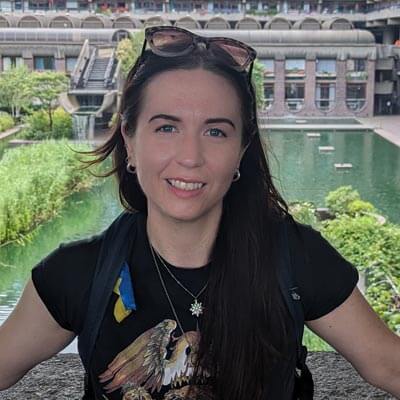
Rasa Bočytė (LT)
Rasa Bocyte is Senior Advisor for Research Collaborations at the Netherlands Institute for Sound & Vision. She leads the development and execution of research projects that aim to extend the impact of digital cultural heritage through digital technologies, new business models and improved policies. Her academic background is in art history and archival studies.
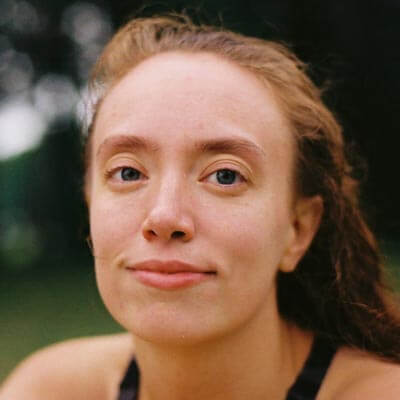
Olga Tykhonova (UA/AT)
Olga Tykhonova is the Head of Strategic Development at MUSEUM BOOSTER, a Vienna-based research & consultancy company with a focus on the strategic advancement of museums and cultural institutions through digital transformation and organisational innovation. Olga combines research and hands-on practice when designing and launching long-term institutional and multi-constituent programmes aimed at strategic and ecosystemic advancement of museums. Currently she is a research curator of the Future Museum practice-based research project and Museum Leadership House, has been working on the design of the incubation programme for the DOORS: Digital Incubator for Museums and the re-launch of the Museum Innovation Barometer.
Trained as an art-historian (CUNY, NYC), her long-term research focuses on art institutions as a medium and artistic forms of knowledge production. Former Fulbright scholar and Edmund S. Muskie Fellow.
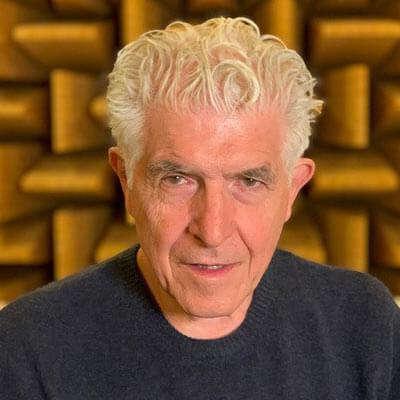
Bill Fontana (US)
US sound artist Bill Fontana has been using sound as a sculptural medium since the late 1960s. He has since created over 50 sound sculptures and radio sculptures. His works have been installed in many museums, including the Whitney Museum of American Art, the San Francisco Museum of Modern Art and the Museum Ludwig, Cologne.
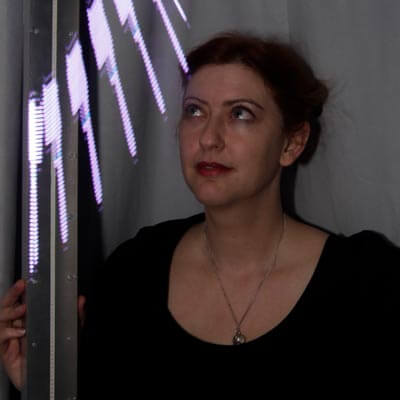
Jennifer Kanary (CA)
Dr. Jennifer Kanary Nikolov(a) is a Canadian born mind-warrior based in The Netherlands. She is founder of Roomforthoughts, an art practice that is dedicated to understanding the physics of thought in relation to how we experience and construct realities that influence wellbeing. Jennifer holds an artistic research PhD in psychosis simulation with the project Labyrinth Psychotica. Her newest project The Anoiksis Experiment is radically placing the understanding of the function of hallucination and delusion as central to understanding and holding space for all subjectivity of wellbeing.
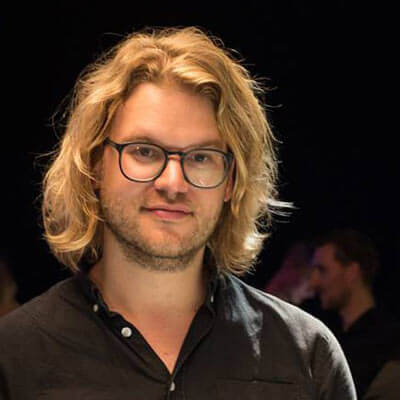
Florian Weigl (NL)
Florian Weigl is curator at V2_, Lab for the Unstable Media. He is interested in art and contemporary technology reflecting on society, in collaboration with artists in the development of critical dialogue, artistic reflection and practice-oriented research.
Curatorial projects at V2_ he did include the live experiment series 3×3 he initiated, and amongst others the group exhibitions To Mind Is To Care, Reasonable Doubt, WATERWORKS and Geological. He is also author/editor of the publications 3×3 Live experimenteren (2020) and Art and Care (2021)
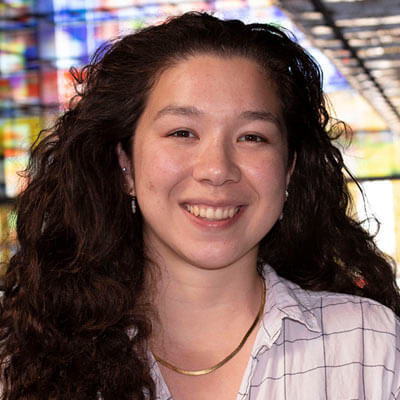
Kelly Hazejager (NL)
Kelly is a Researcher at the Netherlands Institute for Sound & Vision, working on participation, collaboration and partnership in the cultural sector(s) and the capacities needed to support this.
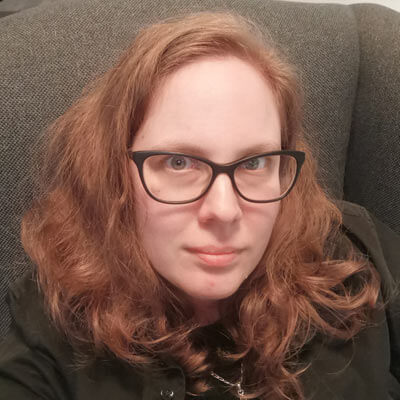
Gefion Thuermer (UK)
Gefion Thuermer is a Research Fellow at King’s College London, and the technical and scientific coordinator of IMPETUS, a Horizon Europe project that provides resources, support and recognition for citizen science initiatives across Europe, and also awards the European Union Prize for Citizen Science.
Gefion holds a bachelors’ degree in cultural sciences from FernUniversität Hagen, and an MSc and a PhD in Web Science from the University of Southampton. Her recent work across several Horizon 2020-funded projects has focused on the socio-technical aspects of data. Her research is interdisciplinary, in social and computer science, with a focus on (online) participation, process design, HCI and EDI: to enable inclusive engagement wherever people use technology to achieve goals together.
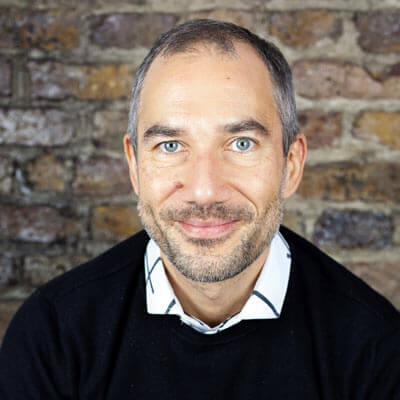
Andrea Bandelli (NL)
Andrea Bandelli is an international expert on public participation and cultural collaborations. He has held leadership roles at Vrije Universiteit Amsterdam and Science Gallery International, and In his career spanning 25 years he has worked for several public and private organisations, including science museums, government organisations and universities across Europe, USA, South Africa and Brazil, leading some of the most innovative projects on science, art, democracy and public participation.
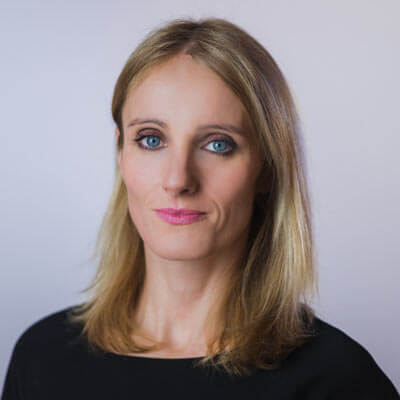
Petra Vanič (SL)
Petra Vanič joined team Kersnikova in 2009 initially assuming the role of a producer for contemporary investigative art projects. Recognizing the importance of education and its transformative power, she went on to co-create an extensive capacity building program within Kersnikova, that stands out for its ability to address contemporary issues through hands-on approaches to STEAM learning. Emphasizing the values of DIY (Do-It-Yourself), DIWO (Do-It-With-Others), and DITO (Do-It-Together), the program empowers participants to actively engage with art and technology, encouraging critical thinking and collaborative problem-solving. The Academy fosters an innovative environment that encourages exploration, innovation, and meaningful dialogue at the intersection of art, technology and society.
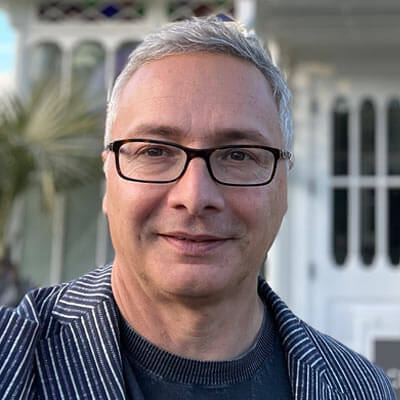
Marco Cappellini (IT)
Electronic engineer, +20 years experience in art&technology. During 1997-98 he has been technical manager of HYPERMUSEUM Project for CIVITA Consortium.
In 1999 co-founder of Centrica (www.centrica.it), the digital-imaging company which creates also immersive exhibitions, like Renaissance Experience, now in National Museum in Beijing, and enabling platforms, like the one that powers the pluri-awarded ArtCentrica Edtech startup (https://www.artcentrica.com).
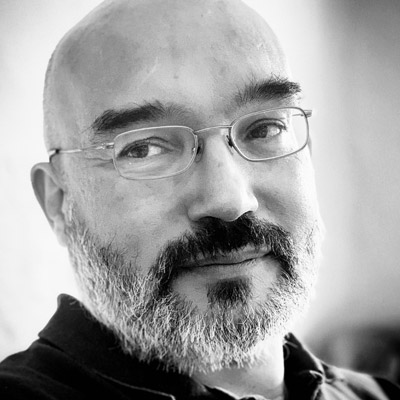
Pau Alsina (ES)
Director of the Art and Technology program at the Open University of Catalonia (UOC). Co-director of Hac Te, art, science and technology hub in Barcelona. Associate Professor of the Arts and Humanities Studies. He is a Phd in Contemporary Philosophy, researcher currently working on the creation of the RED ACTS (Spanish Network of Art, Science, Technology and Society) and on the European project „S+T+ARTS in the City“. Editor of Artnodes Journal on Art and Science since 2002. Curator of the Science Biennale (2019, 2021) and in 2022 was General Chair of the BCN International Symposium of Electronic Arts (ISEA). He has recently published the study „Art and Artificial Intelligence“ in the AC/E Digital Culture Yearbook (2022), and directed the Spanish White Book on Art, Science, Technology and Society (2023). He is a member of the Executive Committee of the Barcelona Culture Council.
